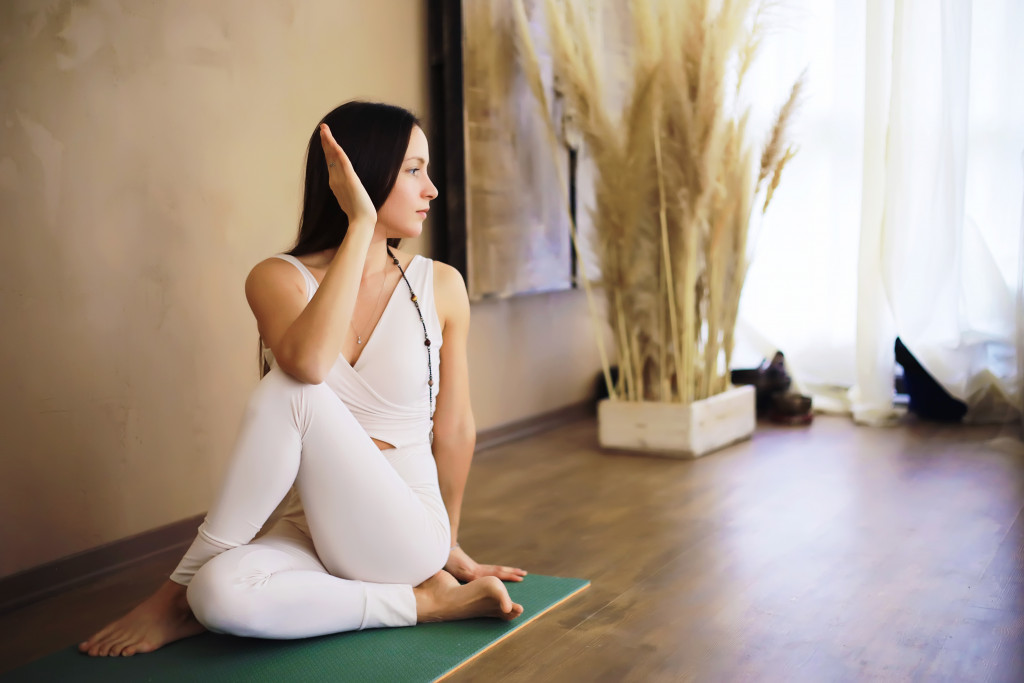Disclaimer: This website provides health information for educational purposes only and is not a substitute for professional medical advice, diagnosis, or treatment. Always seek the guidance of a qualified healthcare provider with any questions you may have.
With the constant pressure of work and life piling up, it’s essential to take a step back and relax. For some, this may mean taking a yoga class or running. However, for others, relaxation comes in the form of meditation. If you’re looking to get started with meditation, here are a few tips to help you get the most out of it.
Find a comfortable spot.
Finding a comfortable spot is perhaps the most crucial step in successful meditation. It would help if you found a place where you won’t be disturbed and where you’re comfortable. It can be helpful to create a dedicated space for meditation, such as a corner in your room or a rug in your living room.
Consider adding a few natural elements to your space, such as plants or a small fountain. But if you want to make things extra, consider adding wood-style laminate for walls to give your space a more zen feel. Wall laminates are a great option because they’re easy to install and care for. Plus, they come in various styles and colors to match any décor.
Invest in comfortable props
Regular meditation can bring many benefits, from reducing stress and anxiety to improving sleep and concentration. However, making time to meditate can be challenging, and it’s easy to find excuses to skip a session. One way to make it easier to stick with a practice is to create a comfortable and inviting home space dedicated to mindfulness. Start by investing in a few key props, such as a comfortable mat or cushion, some soothing essential oils, and a relaxing playlist. Then, make time to sit in silence each day and focus on your breath. With a little effort, you can create a peaceful oasis that will make it easier to stick with your meditation practice and reap the rewards.
Set a timer
One of the most important things you can do for your health is to meditate regularly. However, it can be challenging to find the time and space to meditate, especially if you live in a busy city. Fortunately, you can do a few simple things to make meditation part of your daily routine. One of the most effective ways to meditate is to set a timer for yourself. This way, you can focus on your breath without worrying about the time. Start by selecting the timer for 10 minutes and gradually increase the time as you get more comfortable with meditation. In addition, it helps to find a quiet, comfortable place to sit or lie down. Remember that even just a few minutes of meditation can help you to reduce stress and improve your overall wellbeing.
Start with a guided meditation.

Trying to meditate at home can sometimes feel like herding cats. There are so many distractions: the TV, the laundry, that spot on the ceiling that needs fixing. It’s no wonder many people give up on meditation before they even start. But a way to make it work is to begin with a guided meditation.
Guided meditation is simply a meditation led by someone else, either in person or via audio or video. This can be a great way to learn meditation basics and get into the right frame of mind for a successful session. Once you’ve tried it with guidance, you’ll be better equipped to meditate on your own – and you may find that it’s not nearly as difficult as you thought. So, if you’re ready to try meditation, seek a guided meditation and see how it goes. You may be pleasantly surprised at the results.
Focus on your breath
The most challenging part of meditation for many people is simply getting started. Once you’re sitting down and trying to clear your mind, it can be easy to get frustrated by the constant stream of thoughts running through your head. However, if you take a moment to focus on your breath, you’ll find that the rest of your body will follow suit. Inhale deeply, filling your lungs entirely before exhaling slowly. As you breathe, pay attention to how your abdomen rises and falls.
Focusing on this physical sensation will help anchor your mind in the present moment and make it easier to let go of intrusive thoughts. Once you’ve established a steady rhythm, simply observe your breath and allow yourself to be consumed by the act of breathing. You may not reach a state of complete mindfulness, but with practice, you’ll find it more accessible and easier to quiet your mind and achieve inner peace.
The bottom line
Meditation can be a great way to reduce stress and improve your overall health. However, it can be challenging to find the time and space to meditate, especially if you live in a busy city. Follow these tips to make meditation part of your daily routine and reap the benefits of regular practice.




